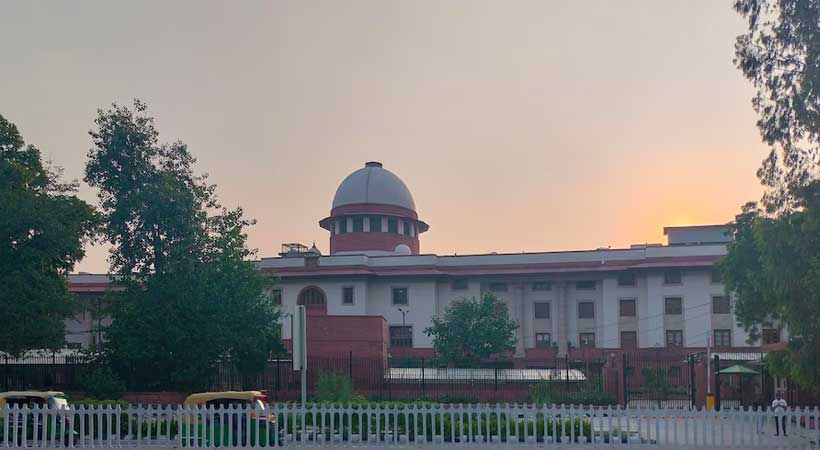Expert Legal Guidance for Filing Writ Petitions and Public Interest Litigations (PILs)
At Nevo Legal, we offer professional legal advice on Writ Petitions and Public Interest Litigations (PILs) to help individuals and groups protect their constitutional rights or raise issues affecting public welfare. Whether it’s a violation of fundamental rights or a matter of larger public concern, our civil law experts guide you through the correct legal route for redressal in the High Courts or Supreme Court. From identifying the right type of writ to preparing and filing petitions, we ensure strong legal support throughout the process.
Why You Need Legal Advice on Writ & PIL Matters
Writs and Public Interest Litigations are powerful tools provided by the Constitution to ensure justice and accountability. However, these legal remedies must be used properly, with clear legal grounds and procedural compliance. With Nevo Legal, you get access to civil law professionals who help assess your case, choose the right kind of writ (like Habeas Corpus, Mandamus, Certiorari, Prohibition, or Quo-Warranto), and draft strong petitions that stand up in court. Our legal advice ensures that your rights are not just heard—but protected.
How Online Legal Advice Works
Choose the area of law related to your concern, fill out the form, and complete the payment.
 Step 1
Step 1Our legal secretaries will conduct a thorough study of your issue. If required, they will call you for an accurate initial review of your case.
 Step 2
Step 2Based on your specific case details,including location,language, and the nature of your legal issue,we utilize a sophisticated matching system to connect you with the most suitable law firm from our network.
 Step 3
Step 3The law firm we carefully select for you will assume full responsibility for your case. They will provide you with the necessary legal advice on your issue.
 Step 4
Step 4How It Works – Step-by-Step Consultation Process
1
Initial Consultation
Share your concern related to a personal right violation or a matter of public interest.
2
Case Assessment
We evaluate the nature of the issue and advise whether it qualifies for a writ petition or PIL.
3
Documentation & Research
We help gather necessary documentation and conduct legal research to support the case.
4
Drafting the Petition
A professionally drafted Writ or PIL is prepared, highlighting all facts, legal grounds, and requested reliefs.
5
Filing & Court Process
We assist in filing the petition in the appropriate court and guide you on the next steps, including hearings and follow-ups.
Requirements – Documents Needed for Legal Consultation
- Brief note on the issue or grievance
- Identity proof of the petitioner
- Supporting documents (letters, RTIs, representations, etc.)
- Communication with concerned authorities (if any)
- Newspaper reports, media coverage (for PILs)
- Legal notices issued or received (if any)
Deliverables – What You Receive from Our Legal Service
✔ Legal opinion on the maintainability of the Writ or PIL
✔ Detailed explanation of legal remedies available
✔ Drafting of the Writ Petition or PIL
✔ Guidance on court procedures and representation options
✔ Continued legal advice during the course of the matter
✔ Assistance in urgent matters like habeas corpus or stay orders
What is Legal Advice on Writ / PIL?
Legal advice on Writ and PIL involves professional legal consultation for filing petitions under constitutional remedies. A Writ is a formal order issued by a court to protect individual rights, while a PIL (Public Interest Litigation) allows any individual or group to raise issues of public concern before the judiciary. Civil lawyers help determine if the case qualifies, choose the appropriate writ, and prepare court-ready documents. It ensures your grievance is properly framed, legally valid, and has a stronger chance of being accepted by the courts.
Frequently Asked Questions (FAQ)
Any citizen or organization can file a PIL on behalf of affected individuals or the general public, even if they are not directly impacted.
The five types of Writs are Habeas Corpus, Mandamus, Certiorari, Prohibition, and Quo-Warranto—each serves a specific legal purpose.
Writs and PILs can be filed in High Courts under Article 226 or in the Supreme Court under Article 32 of the Indian Constitution.
While possible, it is advisable to consult a legal expert to draft and file the petition properly for better chances of success.
Yes, the court may reject a PIL if it lacks legal basis, is vague, or appears to be filed with a personal motive rather than public interest.

